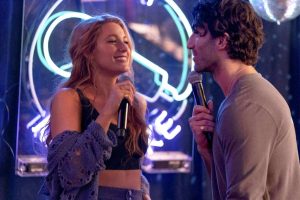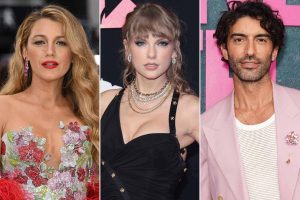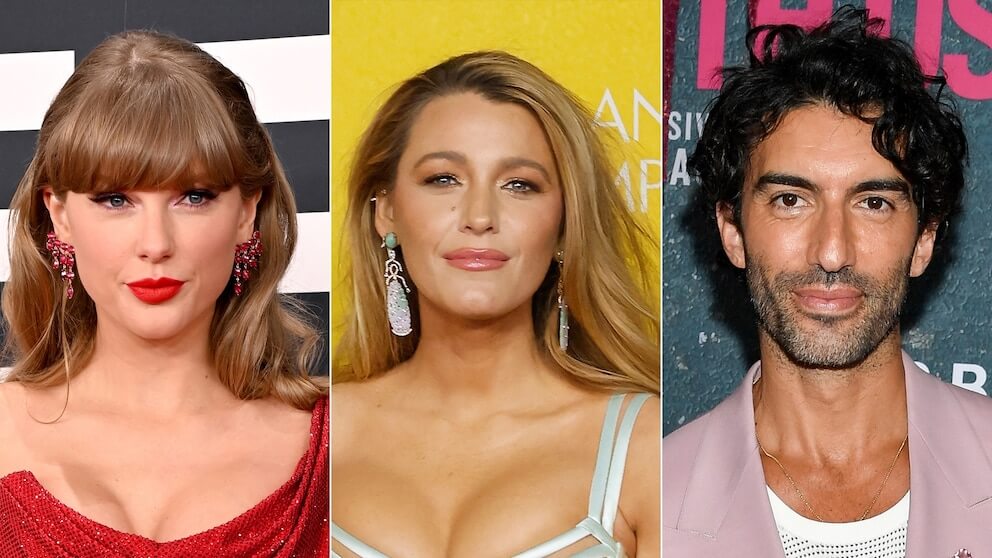World News
Blake Lively vs. Justin Baldoni: Hollywood Legal Firestorm and the Taylor Swift
A High-Profile Lawsuit Unfolds: The Origins of the Legal Feud
Hollywood has always been a stage for spectacle—sometimes more dramatically off-screen than on. Such is the case in the explosive legal battle that erupted between actress Blake Lively and actor-director Justin Baldoni. What began as a collaborative passion project with the film adaptation of It Ends With Us has morphed into a tangled web of lawsuits, counterclaims, and celebrity entanglements.
In late 2024, Blake Lively filed a lawsuit accusing Justin Baldoni of sexual harassment, retaliation, and unprofessional conduct during the film’s production. The allegations detailed a pattern of inappropriate behavior and an alleged misuse of power on set, suggesting Lively endured months of mistreatment, both emotional and professional. The suit also claimed that Lively’s complaints to producers and legal teams were not taken seriously, escalating the conflict beyond mere workplace disputes.
Justin Baldoni, a well-known actor and filmmaker revered for his clean-cut public image and work on emotionally driven films and series, quickly fired back with a counter-lawsuit. In a staggering $400 million defamation and extortion claim, Baldoni accused Lively, her husband Ryan Reynolds, and their longtime publicist Leslie Sloane of orchestrating a coordinated media campaign to tarnish his reputation and force a financial settlement. Baldoni claimed he was the target of malicious falsehoods designed to manipulate public opinion in Lively’s favor.
The legal saga, filled with high-stakes claims and reputational risks, rapidly became tabloid fodder, pitting two of Hollywood’s most beloved figures against each other. With each side doubling down on their accusations, the courtroom drama spilled into the public eye, prompting intense scrutiny and speculation about the truth behind the glamour.

A Swift Entanglement: Taylor Swift Pulled into the Legal Crossfire
As if the Lively-Baldoni legal drama wasn’t explosive enough, the controversy took a more dramatic turn when pop icon Taylor Swift was unexpectedly dragged into the fray. According to court filings by Baldoni’s legal team, Lively allegedly tried to coerce Swift into publicly supporting her side of the dispute. These filings claim Lively’s legal team, led by attorney Michael Gottlieb, went so far as to threaten the release of private communications between Swift and Lively if the singer did not issue a favorable public statement.
Swift, known for being intensely private and strategically cautious with public affiliations, immediately became the subject of media frenzy. Allegedly, Lively asked Swift to delete certain messages that could be subpoenaed or presented in court—raising questions about witness tampering, obstruction, or even potential spoliation of evidence. Though Baldoni’s team has yet to provide hard proof of these actions, the claims have sparked outrage, speculation, and a new layer of complexity in the case.
Swift’s involvement in It Ends With Us was limited to the licensing of her song “My Tears Ricochet” for the soundtrack. There’s no evidence that Swift had any further professional or contractual stake in the film. Yet her close friendship with Lively, spanning over a decade, meant any association—even indirect—would carry significant weight in public discourse.
The implications are serious. If Swift had complied with the alleged requests, even unknowingly, she could have faced legal scrutiny herself. The mere mention of her name in court documents triggered a wave of legal maneuvers from her team and placed the multi-Grammy winner at the center of a controversy she never asked to join.
Taylor Swift Breaks Her Silence: Defending Privacy and Legal Boundaries
Not one to be silenced in the face of controversy, Taylor Swift’s legal team swiftly took action. In official filings, they called the subpoena for Swift’s testimony and communication records “harassing” and “an abuse of judicial process.” They argued that the attempt to involve her was not grounded in a legitimate legal need but rather a ploy to garner attention and drag her name through the media as leverage in a case she had nothing to do with.
The statement from Swift’s lawyer emphasized that the singer had no material knowledge of the events in question and played no role in the production or legal affairs of It Ends With Us. “Ms. Swift’s communications with Ms. Lively are personal in nature and irrelevant to the issues at stake in this lawsuit,” the filing read. They also confirmed that Swift would not be complying with the subpoena without a judge’s order and would challenge it on constitutional and privacy grounds.
The move garnered praise from legal experts and fans alike, as Swift asserted her boundaries in a legal environment that has often tried to weaponize public figures’ celebrity status. Her stance highlighted the tension between celebrity culture and due process—raising questions about whether famous individuals can ever truly avoid being swept into the public messes of those around them.
Beyond the courtrooms, Swift’s silence and poise were interpreted by many as a subtle rebuke to any attempt to coerce her support. Her refusal to pick sides publicly—especially in a case involving close friends—spoke volumes about her values and the integrity with which she manages her personal and professional relationships.

Lively’s Legal Defense: Refuting Retaliation and Setting the Record Straight
In response to Baldoni’s explosive counterclaims and the allegations of coercion involving Taylor Swift, Blake Lively’s legal team launched a vigorous defense. Michael Gottlieb, her lead attorney, dismissed the claims as “a desperate smokescreen” designed to discredit the original harassment allegations. He asserted that the accusations lacked merit and were an attempt to “intimidate and silence” a woman for speaking out against mistreatment.
Gottlieb further clarified that there was no effort to manipulate Swift or tamper with evidence, labeling such assertions as “patently false and defamatory.” In fact, Lively’s team is reportedly preparing a motion for sanctions against Baldoni’s legal counsel, alleging abuse of the legal process and bad faith conduct. They argue that Baldoni’s counter-suit is retaliatory in nature, seeking to damage Lively’s career and credibility through public spectacle rather than lawful argument.
The strategy adopted by Lively’s camp emphasizes transparency and procedural correctness. Her attorneys have called on the court to fast-track the discovery process and ensure that sensitive material is reviewed under judicial supervision to prevent leaks or misrepresentation.
Meanwhile, the public conversation around the case has become increasingly polarized. While some critics accuse Lively of leveraging personal relationships and the press to gain sympathy, others see her as the victim of a power play designed to shield an alleged abuser from accountability. The reality, as in many celebrity lawsuits, remains layered in legal nuance and PR warfare.
Public Reactions and Industry Ramifications: When Personal Feuds Go Public
The ripple effects of the Lively-Baldoni lawsuit—and its unexpected link to Taylor Swift—have reverberated far beyond the courtroom. In an era where celebrity feuds are dissected in real-time across social media, the public has been swift to take sides, speculating endlessly about who’s right, who’s lying, and what this means for broader cultural movements like #MeToo and #TimesUp.
For Lively, the case threatens to impact her professional reputation, particularly if the narrative of manipulating friends for legal gain gains traction. For Baldoni, the damage could be career-ending if the harassment claims are proven in court. As for Swift, though her involvement is limited, the mere association with the controversy has prompted discussions about the burden placed on celebrities to defend or disavow friends embroiled in scandal.
Hollywood insiders are reportedly watching the case closely. The trial, which is scheduled to begin in March 2026, is expected to include several depositions, expert witnesses, and potentially even high-profile testimonies from other celebrities or insiders involved in the production. It has also reignited conversations about the ethics of workplace relationships in entertainment, the weaponization of personal messages in court, and the moral obligation of public figures to speak—or stay silent—in the face of controversy.
Whatever the legal outcome, the Blake Lively and Justin Baldoni lawsuit is now a flashpoint in Hollywood’s ongoing reckoning with power, accountability, and image. It illustrates how quickly personal grievances can become public crises and how the lines between professional conduct and personal loyalty continue to blur in a world where every text message could become tomorrow’s headline.
From toplineapparelstore

